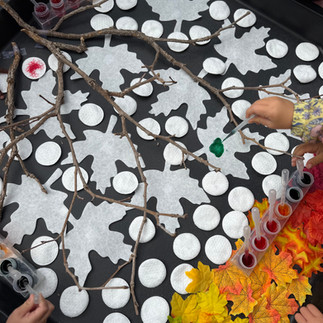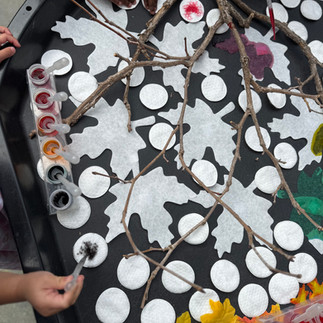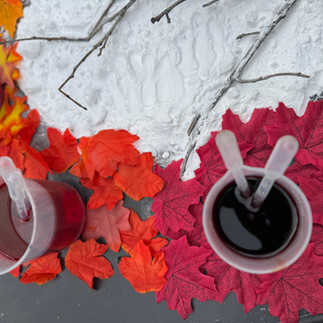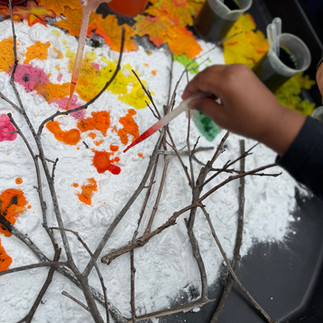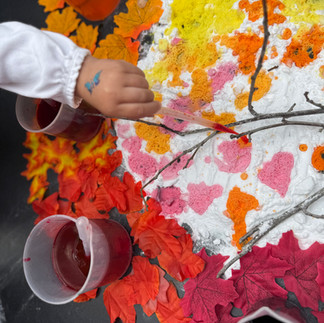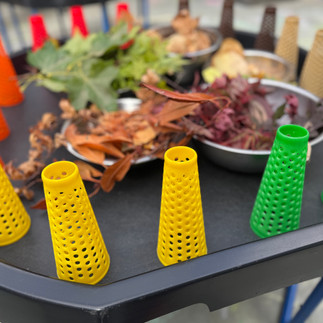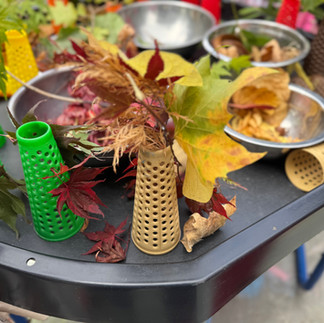Three Ways to Explore Fall Foliage
- Yasmeen Kamrani Sallam
- Sep 9, 2025
- 2 min read
As fall arrives, the children have been noticing the beautiful changes in nature—especially the leaves shifting from green to brilliant shades of red, yellow, orange, & brown. To nurture their natural curiosity, we’ve been reading books about autumn & exploring the science behind why leaves change colors.

During fall, shorter daylight hours & cooler temperatures signal trees to stop producing chlorophyll. As the green fades, the vibrant yellows, oranges, browns, reds emerge, giving the season its signature beauty.
Here are three hands-on ways we explored the wonder of fall:
1. Create a Fall Foliage Tree: The children captured the seasonal transformation through hands-on art. Using real foraged branches in our tuff tray , cotton pads as “leaves,” liquid watercolor leaves, they used pipettes with Colorations® Liquid Watercolors to drop & blend colors, designing unique autumn canopies.

This activity helped children:
Strengthen fine motor skills + hand–eye coordination
Explore color theory through mixing & blending
Practice language skills by naming & describing colors
Engage in creativity, problem-solving, & experimentation
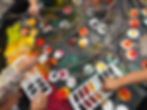
Art experiences like this mirror the work of young scientists. By observing, testing, & discovering, children connect with the world around them, building curiosity & a lifelong love of learning.

2. STEAM Fall Foliage: This STEAM invitation combined science, art, & hands-on discovery. Using branches, baking soda shaped like a tree, fall leaves, & pipettes filled with vinegar mixed with Colorations® Liquid Watercolors, the children created fizzing, bubbling “fall trees.”

The activity allowed children to:
Observe a real chemical reaction
Strengthen fine motor skills using pipettes
Explore color mixing & transformation
Connect science to seasonal changes

With every squeeze, fizz, & burst of color, children discovered that science is hands-on, exciting, & as beautiful as the changing seasons, where every bubble sparks curiosity and learning.
3. Fall Leaves Fine Motor Gym: Using colorful Open Play Toys cones (rainbow, earth tones) & freshly foraged leaves, children created their own fall trees by carefully placing leaves into the holes of the cones. What seemed simple became a fine motor challenge, strengthening finger muscles, hand–eye coordination, dexterity, & the pincer grasp—skills essential for writing, cutting, + painting.


Children quickly discovered some leaves didn’t fit on the first try, encouraging them to slow down, adjust their strategy, & persist. These moments built resilience, patience, & confidence. By the end, each cone became a one-of-a-kind fall tree—showing not just the beauty of the season, but also the growth happening in each child’s hands and mind.









